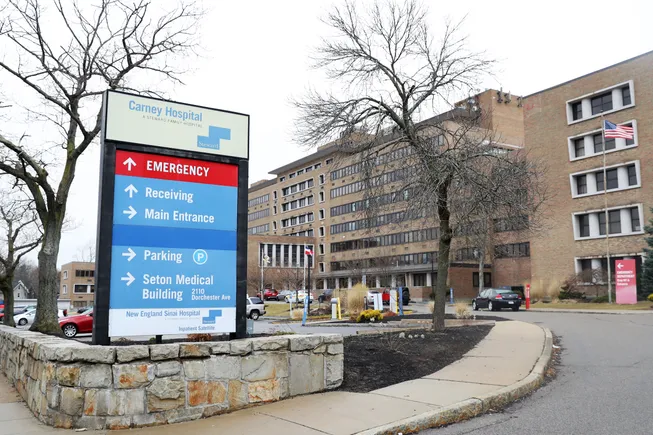Massachusetts Gov. Maura Healey signed a sweeping healthcare bill into law on Wednesday that increases oversight over for-profit healthcare investment following the collapse of Steward Health Care last year.
The law, which is part of a larger healthcare package, increases regulators’ oversight of deals and sharpens financial penalties for companies that don’t comply with reporting requirements.
State regulators and public health officials spent the majority of 2024 enmeshed in difficulties related to Steward, after the for-profit health system crumbled under the weight of unsustainable financial obligations and filed for bankruptcy.
Prior to going bankrupt, Steward operated eight hospitals in the state, and its failure strained Massachusetts’ already fragile public health system.
During its restructuring, Steward permanently closed three Massachusetts hospitals, laid off more than a thousand workers and sought millions of dollars from the state in order to keep its remaining Massachusetts facilities open.
State officials say that the new oversight law will close “loopholes” that allowed Steward executives to hide the system’s increasingly dire financial situation from regulators.
“What [CEO] Ralph De La Torre and Steward did to our residents was unconscionable and reprehensible, however, it was legal,” said State Rep. John Lawn Jr. in a statement on Wednesday. “Following the Steward Health Care crisis, it is the Legislature’s responsibility to ensure that what happened with Steward never happens again in the Commonwealth.”
Sharper teeth, further reach
Some of the key components of the new law map directly to regulators’ top concerns about Steward.
For example, the new law increases financial penalties for health systems that fail to provide regulators with comprehensive annual financial statements. Fines will increase from $1,000 to $25,000 per week, with no annual cap.
Although Steward was required to provide financial statements prior to declaring bankruptcy, the health system had been ignoring the requirements since at least 2017 — despite regulators levying fines against the system and seeking a court order attempting to compel the financial statements. Healey’s administration also pleaded with Steward’s CEO to disclose financial information.
Still, Steward stalled and regulators did not see the full picture until the health system began to file documents in federal bankruptcy court, revealing over $9 billion in total liabilities.
In addition to increasing fines, the law also gives regulators the opportunity to review financial information from a broader array of healthcare stakeholders, including private equity investors, healthcare real estate investment trusts, managed service organizations and pharmacy benefit managers.
The Health Policy Commission — which both reviews new deals and annual healthcare cost trends in the state — will scrutinize the market impact of transactions involving “significant” equity investors and those involving sale-leaseback transactions.
Politicians have accused Steward’s own private investors — including its former private equity owner Cerberus Capital Management and healthcare REIT Medical Properties Trust — of using financial maneuvers such as debt-funded dividends and sale leaseback transactions to get rich while Steward suffered.
The state is also cracking down further on healthcare real estate investment trusts. MPT’s leases with Steward drew scrutiny in the months preceding its bankruptcy. Although lawyers for MPT testified in federal court that they were not to blame for the health system’s bankruptcy, Sen. Elizabeth Warren, D-Mass., characterized the rents as unsustainable in a letter to MPT’s CEO, Edward Aldag.
“MPT has – along with Steward – plundered these hospitals,” Warren wrote in April.
Under the new law, the Department of Public Health will not issue a license to establish or maintain an acute care hospital that leases its main campus from a REIT, however, there is an exception for hospitals that had lease agreements in place as of April 1.
Massachusetts’ crackdown on private investors in healthcare delivery comes amid mounting pressure nationwide on private equity firms and REITs.
This week, the Senate Budget Committee published a report documenting a year-long investigation into the deleterious impact private equity investors had on healthcare quality at certain hospitals.
The report included evidence that sale leaseback transactions orchestrated at the direction of private equity firms — in which hospitals sell their real estate to a REIT and then pay to rent the facility — benefited investors by generating quick cash, but at times left hospitals paying unsustainable high rents.


